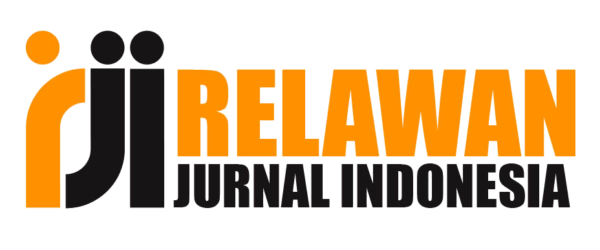EFEKTIVITAS MODEL TUTORIAL DELIBERATIF LEARNING DALAM PEMBELAJARAN IPA MAHASISWA PROGRAM STUDI S1 PGSD DI UNIT PROGRAM BELAJAR JARAK JAUH UNIVERSITAS TERBUKA PURWOKERTO
Abstract
Efektivitas model tutorial deliberative learning dalam pembelajaran IPA mahasiswa program studi S1 PGSD di unit program belajar jarak jauh Universitas Terbuka Purwokerto dilakukan untuk mengembangkan metode dan strategi alternatif pembelajaran (tutorial) yang lebih kreatif dan inovatif telah dilakukan. Selama ini, model tutorial yang dilakukan adalah model tradisional (conventional learning), di mana proses tutorial kurang melibatkan mahasiswa dan sumber pembelajaran lainnya dalam bentuk pembelajaran berbasis teamwork. Model tutorial deliberatif learning (MDL) dilakukan di 3 kelompok belajar yaitu Slawi, Kemangkon dan Purwokerto untuk semester 9 kelas paralel (disebut kelas kontrol dan kelas eksperimen) dan dibuat per kelompok untuk diskusi. Hasil tutorial kelas kontrol (conventional learning) dan kelas eksperimen (MDL) kemudian dibandingkan dan dianalisis aspek kognitif, afektif dan psikomotorik. Setelah dilakukan pengujian, diperoleh hasil tutorial bahwa efektivitas hasil belajar kelas eksperimen meningkat untuk aspek kognitif, afektif dan psikomotorik rata-rata sebesar 75%. Hal ini menunjukkan bahwa model tutorial MDL membuat mahasiswa lebih kreatif untuk mengeksplorasi dan termotivasi untuk belajar sistematis dan inovatif, sehingga dapatlah disimpulkan bahwa model tutorial deliberatif learning signifikan dapat mengubah perilaku sumber pembelajaran (tutor, mahasiswa dan sumber pembelajaran berbasis cyber) untuk dapat saling berkolaborasi.
Kata kunci: Model Deliberative Learning; Model conventional learning; efektivitas; kreatif; inovasi.
The effectiveness of the deliberative learning model in IPA teaching students of S1 PGSD in units of distance learning programs, Open University Purwokerto are done to develop alternative methods and strategies of learning (tutorial) that are more creative and innovative has been done. During this time, the tutorial model is done is the traditional model (conventional learning), where the process is less involved students tutorials and other learning resources in the form of teamwork based learning. Model deliberative learning tutorial (MDL) was conducted in three study groups that Slawi, Kemangkon and Purwokerto for fourth-level and parallel classes (called the control class and experimental class) and are made per group for discussion. The results tutorials of the control class (conventional learning) and the experimental class (MDL) are compared and analyzed in the cognitive, affective and psychomotor. After testing, the results are obtained tutorials that the effectiveness of experimental class increased learning outcomes for cognitive, affective and psychomotor average of 75%. This shows that the deliberative learning tutorial model makes students creatively ways to explore and be motivated to learn a systematic and innovatively, so it can be concluded that the deliberative learning tutorial model can significantly change the behavior of learning resources (tutors, students and resource-based learning cyber) to be able to collaborate.
Keywords: Deliberative Learning Model, Model conventional learning, effectiveness, creativity, innovation.
Full Text:
PDF (Bahasa Indonesia)References
Arikunto, Suharsimi. (2013). Dasar-Dasar Evaluasi Pendidikan. Jakarta: Bumi Aksara
Arikunto, Suharsimi. (2010). Prosedur Penelitian. Jakarta: Rineka Cipta.
Utami, D. A., Ramalis, T. R., & Saepuzaman, D. (2016). Penerapan Model Pembelajaran Inkuiri Abduktif Untuk Meningkatkan Keterampilan Berpikir Kritis Dan Penguasaan Konsep Siswa Pada Materi Dinamika. Jurnal Penelitian dan Pembelajaran IPA, 2(2), 176-185.
Arends, Richard I. (2008). Learning To Teach. Yogyakarta: Pustaka Pelajar
Barkley, Elizabert E. (2012). Collaborative Learning Techniques.Bandung: Nusa Media
Beatty, I, D., Gerace, W, J., Leonard W,J., and Dufresne, R,J. (2006) Designing Effective Questions for Classroom Response System Teaching, Scientific Reasoning Research Institute & Department of Physics University of Massachusetts, Amherst, MA 01003-9337 USA.
Brow, T., Zoghi, M., & William, B. (2009). Are Thinking Style Preferences of Healt Science Students Predictive of Their attitudes towards e-learning?. AustralianJournal of Educational Technology.
Gill, Albert. (2005). Deliberative Learning Model, Cambridge University. New York.
Saepuzaman, D., Sriyansyah, S. P., Karim, S., & Sari, I. M. (2017). Tutorial Pra-Kelas: Sebuah Strategi Pembelajaran Untuk Meningkatkan Pemahaman Konsep Pada Perkuliahan Fisika Dasar. Jurnal Pengajaran MIPA, 21(2).
Suminar, I., Siahaan, P., & Sari, I. M. (2013). Peningkatan Hasil Belajar Kognitif Siswa Smp Melalui Pembelajaran Dengan Multi Representasi Dikaitkan Dengan Kecerdasan Majemuk Dalam Pembelajaran IPA Fisika. Wahana Pendidikan Fisika, 1(1).
Parnes. (1997). Source Book for Creativity Problem Solving: A fifth Year Digest of Proven Innovative Process Learning. Bufallo NY.USA.
Panggabean, L. (1996). Penelitian Pendidikan. Jurusan Pendidikan Fisika, Fakultas Pendidikan Matematika Dan Ilmu Pengetahuan Alam. Bandung : Institut Keguruan Dan Ilmu Pendidikan.
Lie, Anita. (2006). Model Baru Pembelajaran IPA dengan Colaborative Approach. Makalah. UNJ Press. Jakarta
Samsudin, A. (2014). Supervisi Akademik Pembelajaran IPA Melalui ICT Based Lesson Study Untuk Membangun Learning Community Guru SD. Mimbar Sekolah Dasar, 1(1), 77-82.
Lyman, F. (1981). The Responsive Classroom Discussion: The inclusion of all students, Mainstreaming Digest, niversity of Maryland, College Park, MD.
Rose, Laura. (1991). Picure This: Teaching Reading through Visualization. For Beginning Learners. Tucson. Arizona. Zephyr Press.
Sanjaya., Wina. (2006). Strategi Pembelajaran, Kencana., Jakarta.
Hermawan, H., Siahaan, P., Suhendi, E., & Samsudin, A. (2017, May). Promoting collaboration skills on reflection concept through multimedia-based integrated instruction. In AIP Conference Proceedings (Vol. 1848, No. 1, p. 050009). AIP Publishing.
Wenger, Win. (1999). Discovering the Obvious-Techniques of Original, Inspired Scientific Discovery, Technical Invention and Innovation. Gaitherburg.MD Project Renassance. USA
DOI: https://doi.org/10.17509/wapfi.v2i2.8272
Refbacks
- There are currently no refbacks.
Copyright (c) 2017 Wahana Pendidikan Fisika
The Journal Wahana Pendidikan Fisika http://ejournal.upi.edu/index.php/WapFi/ is licensed under a Creative Commons Attribution-ShareAlike 4.0 International License
The Journal WaPFi (Wahana Pendidikan Fisika).
All rights reserverd. pISSN 2338-1027 eISSN 2685-4414
Copyright © Faculty of Mathematics and Science Education (FPMIPA) Universitas Pendidikan Indonesia (UPI)










